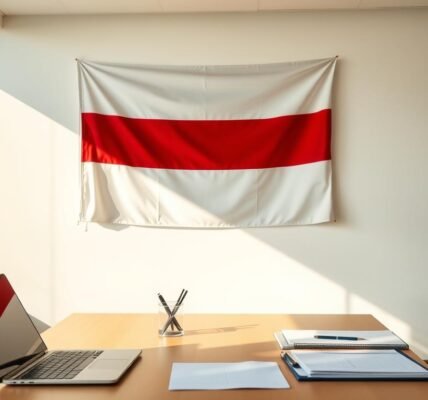Unlock Seamless Family Reunions: Benefits and Advantages of Sponsorship Visas and Marriage Visas in Canada
Family reunification is a cornerstone of inclusive immigration policies.
Programs designed for this purpose offer a pathway for families to stay together. These initiatives prioritize reuniting spouses, common-law partners, and dependent children.
One of the key benefits is the opportunity to obtain permanent residence. This status provides stability and access to various rights. It also allows families to build a future in a welcoming environment.
Processing times are efficient, averaging around 12 months. Financial support obligations ensure sponsors can provide for their loved ones. These programs recognize diverse relationships, including same-sex partnerships.
For Nigerian families, these initiatives are a lifeline. They offer a chance to reunite with loved ones and create lasting bonds. The application process for permanent residence is straightforward, making it accessible to many.
For more information explore the official visa website mentioned in this article:
You will be redirected to another website
Introduction to Visa Sponsorship and Marriage Visas in Canada
Bringing families together is a priority in modern immigration systems. Programs like family-class immigration allow citizens and permanent residents to reunite with their loved ones. These initiatives focus on spouses, common-law partners, and dependent children.
What Are Visa Sponsorship and Marriage Visas?
Sponsorship is a legal commitment where a citizen or permanent resident agrees to support their family members financially. This includes spouses, common-law partners, and dependent children. For conjugal partners, proof of a committed relationship for at least 12 months is required.
Canada aims to welcome over 80,000 family-class immigrants annually. The approval rate for genuine relationships is an impressive 97%. This makes it a reliable option for families looking to reunite.
Why Canada is a Top Destination for Family Reunions
Canada’s multicultural policies and streamlined processes make it a top choice for families worldwide. The country recognizes diverse relationships, including same-sex partnerships. This inclusivity ensures that all families feel welcome.
Quebec residents must meet additional provincial requirements, such as income and linguistic criteria. Despite these, the overall process remains accessible and efficient. For many, Canada offers a chance to build a stable future together.
Understanding the Basics of Visa Sponsorship
Navigating the sponsorship process requires clarity on eligibility and responsibilities. Sponsors play a vital role in reuniting families, but they must meet specific criteria to qualify. These requirements ensure that sponsors can provide adequate support to their loved ones.
Who Can Be a Sponsor?
To become a sponsor, individuals must be at least 18 years old and either a canadian citizen permanent resident. They should not be receiving social assistance, except in cases of disability. Additionally, sponsors must reside in the country, though citizens living abroad can qualify if they prove their intent to return.
Certain exclusions apply. For example, individuals with bankruptcy, criminal convictions, or prior sponsorship defaults are ineligible. Quebec residents face additional requirements, such as higher income thresholds and signing integration plans.
Eligibility Criteria for Sponsors
Sponsors must demonstrate financial stability, especially if they are supporting dependents with children. Income requirements are based on the Low Income Cut-Off (LICO) thresholds. Co-signers, such as spouses or partners, can share financial responsibility to meet these criteria.
Another key aspect is the undertaking period. Sponsors commit to providing support for at least three years for spouses and over ten years for children under 22. This agreement ensures that sponsored individuals have the necessary resources to settle in their new environment.
Types of Sponsorship Visas Available in Canada
Canada offers diverse pathways for families to reunite under its immigration programs. These options cater to different relationship types, ensuring inclusivity and accessibility. Below are the primary categories available for family reunification.
Spousal Sponsorship
This option is for legally married couples. Applicants must provide a valid marriage certificate. Proxy marriages are not accepted. Same-sex marriages are recognized if legally performed in the country or abroad.
Common-Law Partner Sponsorship
For couples who have lived together for at least 12 months, this category applies. Proof of cohabitation, such as shared leases or utility bills, is required. This option is ideal for partners who are not legally married but share a committed relationship.
Conjugal Partner Sponsorship
This category is for partners separated by immigration barriers. Applicants must prove a committed relationship of at least one year. Documentation showing the inability to live together is essential for approval.
Dependent children under 22 years of age, or older if financially dependent, are also eligible. Quebec residents must adhere to additional provincial rules, particularly for undertaking periods.
- Spousal visas require legal marriage certificates.
- Common-law applicants submit shared leases, bills, or insurance documents.
- Conjugal partners must prove a 1+ year relationship with barriers to cohabitation.
Step-by-Step Guide to Applying for a Sponsorship Visa
Applying for a sponsorship program involves a clear, step-by-step process. Following these steps ensures a smooth experience and increases the chances of approval. Below is a detailed guide to help you navigate the application journey.
Step 1: Gather Required Documents
The first step is to prepare your application package. Essential documents include marriage certificates, proof of relationship, and police clearances. Additional items like passports, birth certificates, and evidence of communication records are also necessary.
For spousal sponsorships, the IMM 5532 form is required. Quebec applicants must submit extra forms to MIFI. Ensuring all documents are complete and accurate is crucial to avoid delays.
Step 2: Complete the Application Forms
Next, fill out the required forms carefully. Double-check for errors, as incomplete or unsigned forms can lead to rejection. Translations of non-English documents must be certified.
Step 3: Pay the Application Fees
Fees include processing costs, biometrics ($85), and the right permanent residence fee ($575). The total cost for the sponsor and principal applicant is $1,290 CAD. Quebec residents pay an additional $289.
Step 4: Submit Your Application
Once everything is ready, submit application online via the IRCC portal. Use GCKey to track the status of your application processed. Avoid common errors like missing translations or incomplete forms to ensure a smooth process.
By following these steps, you can confidently navigate the sponsorship application process. Proper preparation and attention to detail are key to reuniting with your loved ones.
Key Benefits of Visa Sponsorship and Marriage Visas
Reuniting with loved ones is a life-changing opportunity for many families. These programs provide stability, access to essential services, and a chance to build a future together. Below are the key advantages of these initiatives.
Seamless Family Reunification
Family reunification programs prioritize bringing relatives together. Applications under the family class are processed within 12 months, ensuring timely reunions. Inland applicants can stay in the country while their applications are being reviewed, reducing separation time.
Opportunities for Work and Study
Sponsored individuals can apply for an open work permit, allowing them to work with any employer. Processing takes 4-5 months, enabling quick integration into the workforce. Additionally, children gain access to public schools, while spouses qualify for language training programs to enhance their skills.
Pathway to Permanent Residence
Becoming a permanent resident grants access to healthcare, education, and social services. After three years of residency, individuals become eligible for citizenship. This status provides long-term stability and opportunities for families to thrive in their new environment.
Super Visas also allow parents and grandparents extended visits of up to 10 years, strengthening family bonds. These benefits make these programs a valuable option for families seeking to reunite and build a future together.
Financial Responsibilities of a Sponsor
Financial commitments are a critical aspect of family reunification programs. Sponsors play a vital role in ensuring their loved ones have the necessary support to settle in their new environment. Understanding these obligations is essential for a successful application.
Understanding the Undertaking Agreement
When sponsors sign undertaking, they agree to provide financial support for their dependents. This agreement is legally binding and ensures that sponsored individuals do not rely on social assistance. The duration of this commitment varies based on the relationship.
For spouses, the undertaking period is three years. For children under 22, it extends to ten years. In the province Quebec, sponsors may commit to up to 25 years, depending on the child’s age. This long-term commitment highlights the importance of financial planning.
Duration of Financial Support
Sponsors must fulfill their obligations regardless of changes in their financial situation. Bankruptcy or income loss does not terminate these responsibilities. Co-signers, such as spouses or partners, share equal liability for financial support.
In Quebec, sponsors are also required to facilitate French learning as part of the integration plan. Defaulting on these obligations can block future sponsorships until debts are repaid. This ensures that sponsors remain accountable for their commitments.
- Sponsors repay any government social assistance used by dependents.
- Financial obligations remain intact even during bankruptcy or income loss.
- Co-signers are equally responsible for providing support.
- Quebec sponsors must help dependents learn French as part of the integration plan.
- Defaults prevent future sponsorships until debts are settled.
Common Challenges in the Sponsorship Process
The sponsorship process can present hurdles that require careful navigation. From documentation errors to processing delays, understanding these challenges helps applicants prepare effectively. Addressing these issues early can save time and reduce stress.
Documentation Errors
Missing or incomplete documents are a leading cause of delays. For example, divorce decrees or translation errors can stall the *application permanent* process. Double-checking all paperwork ensures a smoother experience.
Applicants should verify that all forms are signed and translations are certified. Quebec residents face additional provincial requirements, which can extend processing times. Proper preparation minimizes the risk of setbacks.
Processing Delays
Delays often occur due to high application volumes or missing information. Tracking the status of a *canada application* through the IRCC portal helps applicants stay informed. Responding promptly to requests for additional documents is crucial.
Quebec applicants may experience longer wait times due to provincial verification processes. Staying organized and proactive can help mitigate these delays.
Addressing Inadmissibility Issues
Inadmissibility, such as criminal records, can complicate the process. Applicants *must meet* specific criteria to overcome these barriers. Rehabilitation certificates or Temporary Resident Permits are potential solutions.
For *refugees citizenship* seekers, proving a genuine relationship is essential. Appeals can be filed within 30 days via the Immigration Appeal Division (IAD). Proper documentation and legal guidance are key to resolving these issues.
- Missing documents like divorce decrees or translations cause delays.
- Track applications via the IRCC portal and respond quickly to requests.
- Overcome inadmissibility with rehabilitation certificates or TRPs.
- Quebec applicants face longer processing due to provincial checks.
- Appeals must be filed within 30 days through the IAD.
How to Prove a Genuine Relationship
Proving a genuine relationship is a critical step in the sponsorship process. Immigration authorities require solid evidence to ensure the bond is authentic. This step is especially important for spouse common-law partners and dependent children.
Documentary Evidence Required
Applicants must provide a variety of documents to support their claims. Joint bank accounts, travel itineraries, and affidavits from friends or family are commonly requested. These items help verify the relationship’s authenticity during the sponsorship evaluation.
Photos spanning the relationship timeline are also essential. Notarized letters from landlords or employers confirming cohabitation can strengthen the case. Social media logs, such as messages and tagged posts, serve as supplementary proof.
| Type of Evidence | Examples |
|---|---|
| Financial | Joint bank accounts, shared bills |
| Travel | Itineraries, boarding passes |
| Social | Photos, social media logs |
| Legal | Affidavits, notarized letters |
Tips for Strengthening Your Application
Personalizing your relationship narrative is crucial. Avoid using generic templates, as they may raise doubts. Providing detailed accounts of shared experiences can make your case more compelling.
Legal consultations are recommended for complex situations, such as prior divorces. Ensuring all documents are complete and accurate will help avoid delays in the application processed phase. Interviews may be conducted if doubts arise, so be prepared to answer questions about your relationship.
- Submit 10-20 photos showing milestones in your relationship.
- Include notarized letters from third parties confirming cohabitation.
- Use social media logs as additional evidence.
- Personalize your application to reflect your unique bond.
- Seek legal advice for complex cases.
Sponsorship for Same-Sex Couples
Canada’s inclusive policies extend to same-sex couples seeking family reunification. The country recognizes diverse relationships, ensuring equal opportunities for all families. This section explores the legal recognition and application process for LGBTQ+ couples.
Legal Recognition in Canada
Same-sex marriages are fully recognized if legally performed in Canada or the couple’s home country. This applies to both canadian citizen and permanent residents. Foreign marriage certificates must meet Canadian legal standards to be valid.
Quebec requires French translations of foreign documents for processing. This ensures clarity and compliance with provincial regulations. LGBTQ+ couples face no additional barriers compared to heterosexual couples.
Application Process for Same-Sex Couples
The process for same-sex couples mirrors that of heterosexual couples. Applicants must provide proof of their relationship, such as marriage certificates or evidence of cohabitation. For conjugal partner applications, proof of immigration barriers is required.
Post-arrival support networks, like Rainbow Railroad, assist LGBTQ+ individuals in settling. These resources help families integrate smoothly into their new environment. Below are key points to consider:
- Equal eligibility criteria apply to LGBTQ+ couples.
- Foreign marriage certificates must meet Canadian legal standards.
- Cultural or legal obstacles are highlighted in conjugal partner applications.
- Quebec requires French translations of foreign documents.
- Access to post-arrival support networks is available.
By following these guidelines, same-sex couples can navigate the process with confidence. Canada’s commitment to inclusivity ensures a welcoming environment for all families.
Sponsorship for Dependent Children
Reuniting families through child sponsorship is a vital part of immigration programs. It ensures that parents can bring their dependent child to live with them, fostering stronger family bonds. This process is designed to be straightforward, but it requires careful attention to eligibility and documentation.
Eligibility Criteria for Dependent Children
To qualify, a dependent child must be under 22 years age. Exceptions apply if the child is financially dependent due to a disability. In the province quebec, sponsors must commit to providing support for at least 10 years for children under 16.
Sponsors must meet specific financial and residency requirements. They should be able to demonstrate their ability to support the child without relying on public assistance. This ensures the child’s well-being and smooth integration into their new environment.
Application Process for Child Sponsorship
The first step is preparing the application package. Required documents include birth certificates, custody agreements, or adoption papers. For children over 18, medical exams are mandatory to confirm their health status.
Biometrics, costing $85, are required for children aged 14-79. Quebec applicants must also notarize additional forms for MIFI. Including school records can help prove dependency for older children, strengthening the application.
- Submit birth certificates, custody agreements, or adoption papers.
- Medical exams are required for children over 18.
- Include school records to prove dependency for older children.
- Biometrics ($85) are mandatory for children aged 14-79.
- Quebec applicants must notarize additional forms for MIFI.
Sponsorship for Parents and Grandparents
Reuniting with parents and grandparents is a meaningful way to strengthen family ties. The Parent and Grandparent Program (PGP) offers a pathway for extended family members to live together. This initiative is designed to bring families closer, fostering intergenerational bonds.
Overview of the Parent and Grandparent Program
The PGP allows citizen permanent residents to sponsor their parents and grandparents. Applicants must meet specific income requirements to ensure they can support their loved ones. The program operates on a lottery system, where potential sponsors submit an Interest to Sponsor form annually.
Co-signers, such as a spouse, can help meet income thresholds. This flexibility ensures more families can qualify. Processing times typically range from 20 to 24 months, making it essential to plan ahead.
Income Requirements for Sponsors
Sponsors must demonstrate financial stability by meeting the Minimum Necessary Income (MNI) requirement. This threshold is 30% above the Low Income Cut-Off (LICO) for the past three tax years. Quebec residents face higher income thresholds, 15% above federal requirements.
Super Visas are an alternative for those who may not meet PGP criteria. These visas allow parents and grandparents to stay for up to 10 years, provided they have private medical insurance coverage of $100,000+ CAD.
| Program | Income Requirement | Processing Time |
|---|---|---|
| Parent and Grandparent Program | 30% above LICO for 3 years | 20-24 months |
| Super Visa | Private medical insurance ($100,000+ CAD) | Varies |
By understanding these requirements, families can make informed decisions about reuniting with their loved ones. Whether through the PGP or Super Visas, these programs provide valuable opportunities to create lasting memories together.
Inland vs. Outland Sponsorship Applications
Understanding the differences between inland and outland applications is crucial for families planning to reunite. Each option has unique benefits and considerations, making it essential to choose the right path based on individual circumstances.
Key Differences Between Inland and Outland Applications
Inland applications are for individuals who already live canada on valid visas. One major advantage is the eligibility for an open work permit, allowing applicants to work while their case is processed. However, leaving the country during this period may risk their status.
Outland applications are processed through visa offices outside canada. This option is ideal for applicants from low-risk countries, as it often results in faster processing times. Additionally, outland applicants can travel freely during the process.
| Feature | Inland Application | Outland Application |
|---|---|---|
| Eligibility | Must reside in Canada | Processed outside Canada |
| Work Permit | Open work permit available | Not applicable |
| Travel Restrictions | Risk losing status if leaving Canada | Free to travel during processing |
| Processing Time | Longer for high-risk countries | Faster for low-risk countries |
Choosing the Right Option for Your Situation
For spouse common-law partner applicants already in Canada, inland sponsorship may be the best choice. It allows them to stay together while the application is processed. However, those outside the country or from low-risk regions may benefit from outland applications.
Quebec residents must apply through both IRCC and MIFI, adding an extra layer of complexity. Appeals for outland applications are handled by the Immigration Appeal Division (IAD), while inland cases go to the Federal Court.
- Inland: Ideal for spouses already in Canada on valid visas.
- Outland: Faster processing for applicants from low-risk countries.
- Inland applicants risk losing status if they leave Canada during processing.
- Outland appeals handled by IAD; Inland by Federal Court.
- Quebec residents must apply through both IRCC and MIFI.
Processing Times and What to Expect
Understanding processing times helps applicants plan their family reunification journey. Knowing what to expect reduces stress and ensures a smoother experience. This section provides insights into average processing times and how to track your application status.
Average Processing Times for Sponsorship Visas
The standard processing time for family reunification applications is approximately 12 months. However, applicants in Quebec may experience additional delays of 2-4 months due to provincial requirements. These timelines are based on data from the IRCC.
Delays are common for incomplete applications or cases requiring security screenings. Completing biometrics triggers the next stage of processing. Medical exams are valid for 12 months and may need renewal if the process extends beyond this period.
How to Track Your Application Status
Applicants can monitor their progress using the GCKey or IRCC portal. These platforms provide real-time updates on the application processed status. Staying informed helps avoid unnecessary delays.
Interview requests are sent via email, and applicants should prepare original documents for these meetings. Post-approval, a Confirmation of Permanent Residence (COPR) is issued. Upon entry, the principal applicant processing includes applying for a PR card.
| Stage | Details |
|---|---|
| Biometrics | Triggers next processing stage |
| Medical Exams | Valid for 12 months; may need renewal |
| Interview | Requests sent via email; prepare original documents |
| Post-Approval | COPR issued; apply for PR card upon entry |
By understanding these timelines and tracking your canada application processed status, you can navigate the process with confidence. Proper preparation ensures a seamless journey toward reuniting with your loved ones.
Post-Approval Steps for Sponsored Individuals
After approval, sponsored individuals take important steps to settle in their new home. These steps ensure a smooth transition and access to essential services. From obtaining permanent residency to enrolling in healthcare, the process is designed to help families thrive.
Obtaining Permanent Residence
Once approved, individuals receive their Confirmation of Permanent Residence (COPR). This document is essential for applying for a PR card, which arrives within 6-8 weeks. Attend the PR landing interview and declare any goods to follow.
Sponsored individuals should also apply for a Social Insurance Number (SIN). This number is required for employment and accessing government programs. Parents and grandparents may qualify for provincial seniors’ benefits after 10 years of residency.
Accessing Social Services in Canada
Sponsored individuals gain access to various social services. Enroll in provincial healthcare, though wait periods may apply. Language classes, such as CLIC, are available for French or English training.
After 1,095 days of residency, individuals can apply for citizenship. It’s also important to report address changes to IRCC within 180 days. These steps ensure a seamless integration into Canadian society.
- Attend PR landing interview; declare goods to follow.
- Enroll in provincial healthcare (wait periods apply).
- Access language classes (CLIC) for French/English training.
- Apply for citizenship after 1,095 days of residency.
- Report address changes to IRCC within 180 days.
Tips for a Successful Sponsorship Application
A well-prepared application increases the chances of a smooth sponsorship process. Proper planning and attention to detail can make all the difference. Below are practical tips to help you navigate the journey successfully.
Preparing a Strong Application Package
Start by gathering all required documents. Notarize non-English documents with certified translations. This ensures accuracy and compliance with immigration requirements.
Draft a detailed relationship timeline with milestones. Include photos, travel records, and communication logs. These elements strengthen your case by providing clear evidence of a genuine relationship.
Use checklists from IRCC guides to avoid omissions. Missing documents can delay the process. Double-check all forms for completeness and accuracy before submission.
“A well-organized application is the first step toward reuniting with your loved ones.”
Seeking Professional Help When Needed
Consult immigration lawyers for complex cases, such as inadmissibility or prior divorces. Legal representation has a 95% success rate, according to Cohen Immigration Law.
Use the IRCC webform for urgent updates, like childbirth or address changes. Avoid third-party consultants not licensed by ICCRC. They may lack the expertise to handle your case effectively.
| Tip | Action |
|---|---|
| Documentation | Notarize and translate all non-English documents. |
| Relationship Proof | Submit photos, travel records, and communication logs. |
| Legal Help | Consult licensed immigration lawyers for complex cases. |
| Updates | Use IRCC webform for urgent changes. |
By following these tips, you can enhance your chances of a successful sponsorship application. Proper preparation and professional guidance ensure a smoother process.
Conclusion
Reuniting families offers a chance to build a future together in a welcoming environment. Programs for family unity provide access to work opportunities and pathways to permanent residence. These initiatives ensure that spouse common-law partner relationships and dependent child cases are prioritized, fostering stronger bonds.
Meticulous documentation is key to avoiding delays in the application permanent residence process. Ensuring all forms are complete and accurate saves time and reduces stress. Early preparation for financial and eligibility requirements is equally important.
Inclusive policies recognize diverse family structures, making the process accessible to all. For those navigating the journey, the IRCC portal is a valuable resource for tracking progress. By following these steps, families can confidently move toward a brighter future together.
FAQ
What is the difference between inland and outland sponsorship applications?
Inland applications are for sponsored individuals already living in Canada, while outland applications are for those residing outside the country. Inland applicants may qualify for an open work permit during processing.
How long does it take to process a spousal sponsorship application?
Processing times vary but typically range from 12 to 24 months. Factors like application completeness and the applicant’s country of residence can influence the timeline.
Can I sponsor my same-sex partner for permanent residence?
Yes, Canada recognizes same-sex relationships equally. The application process for same-sex couples is the same as for opposite-sex couples.
What financial responsibilities does a sponsor have?
Sponsors must sign an undertaking agreement, committing to financially support the sponsored person for a specific period, usually 3 to 20 years, depending on the relationship.
Can I sponsor my dependent child if they are over 22 years old?
Dependent children over 22 must prove they are financially dependent due to a physical or mental condition. Otherwise, they are not eligible for sponsorship.
What documents are needed to prove a genuine relationship?
Evidence includes joint bank accounts, shared leases, photos, communication records, and affidavits from friends or family. Strong documentation strengthens the application.
Can I work or study while my sponsorship application is being processed?
Sponsored spouses or common-law partners in Canada may apply for an open work permit, allowing them to work or study while awaiting permanent residence approval.
What happens if my sponsorship application is denied?
If denied, you may appeal the decision or reapply after addressing the reasons for refusal. Seeking professional guidance can improve your chances in a subsequent application.
Are there income requirements for sponsoring a spouse or partner?
Sponsors must meet minimum income requirements only if sponsoring a dependent child with their own dependents. Otherwise, income requirements do not apply for spousal or partner sponsorship.
Can I sponsor my parents or grandparents?
Yes, through the Parent and Grandparent Program. Sponsors must meet income requirements and submit an interest form during the annual intake period.
Published on: 28 de May de 2025





